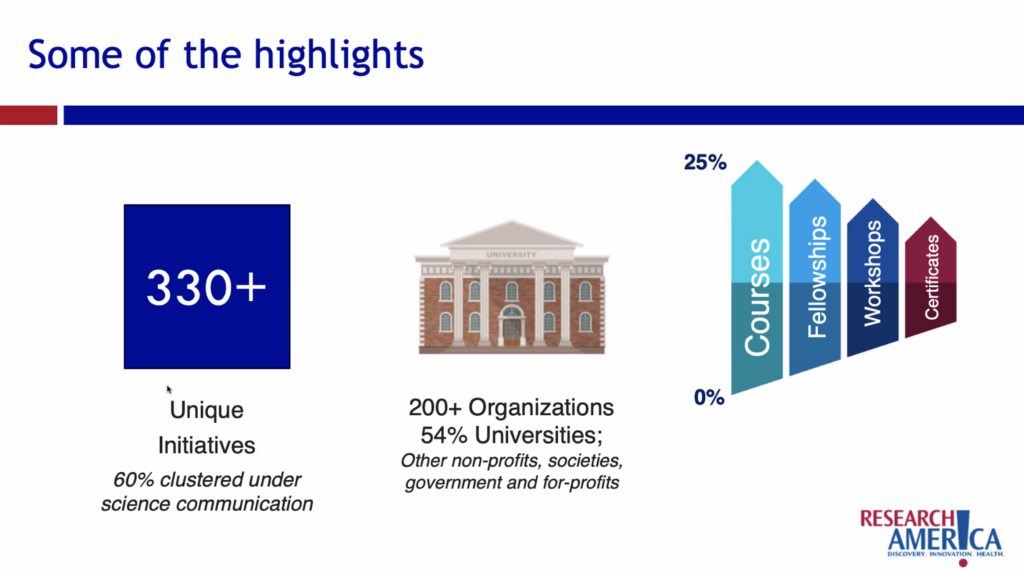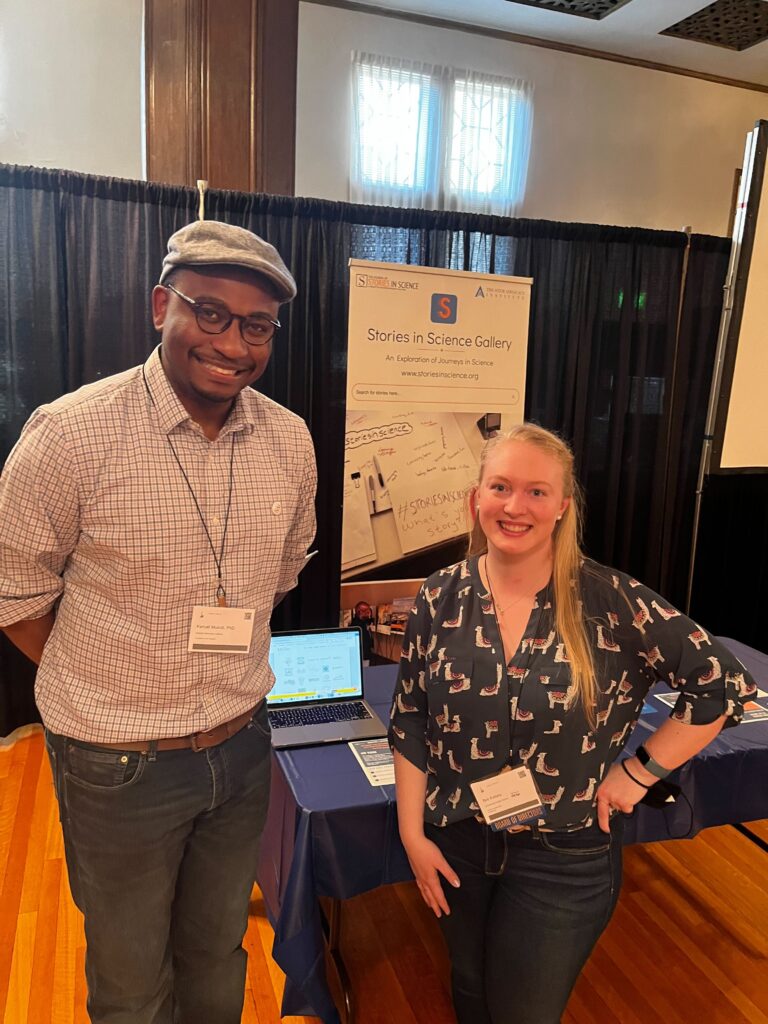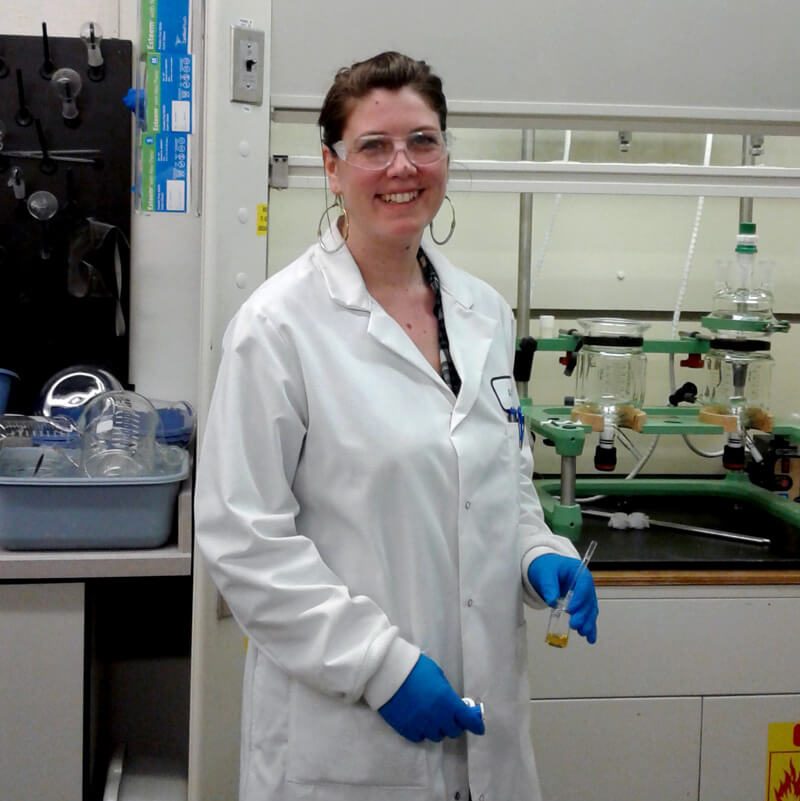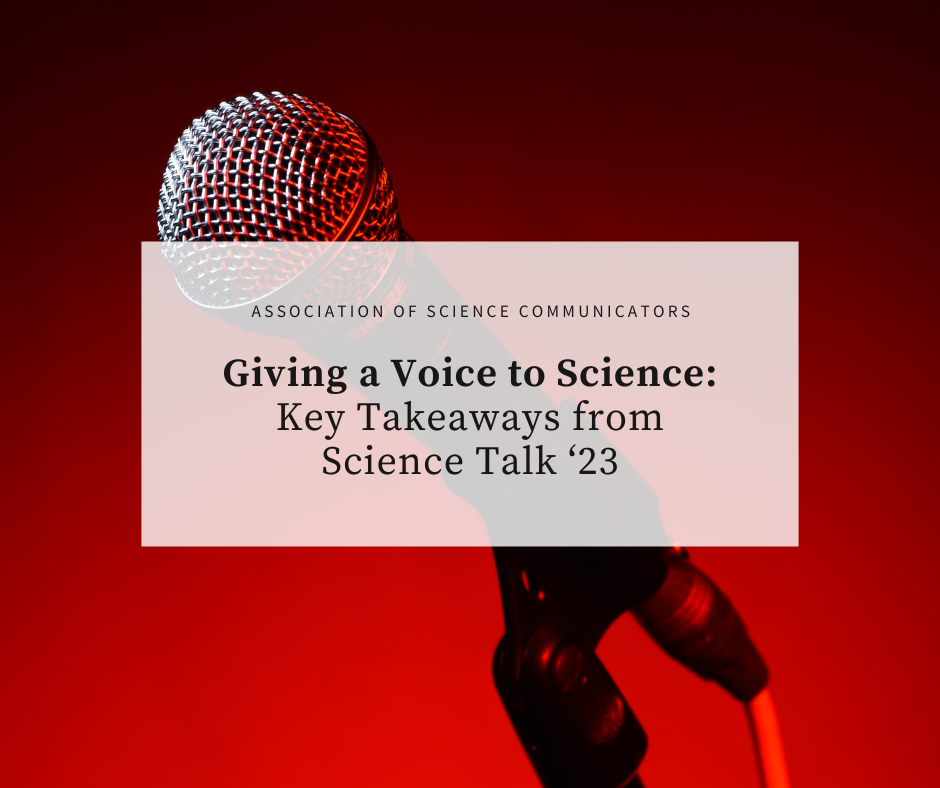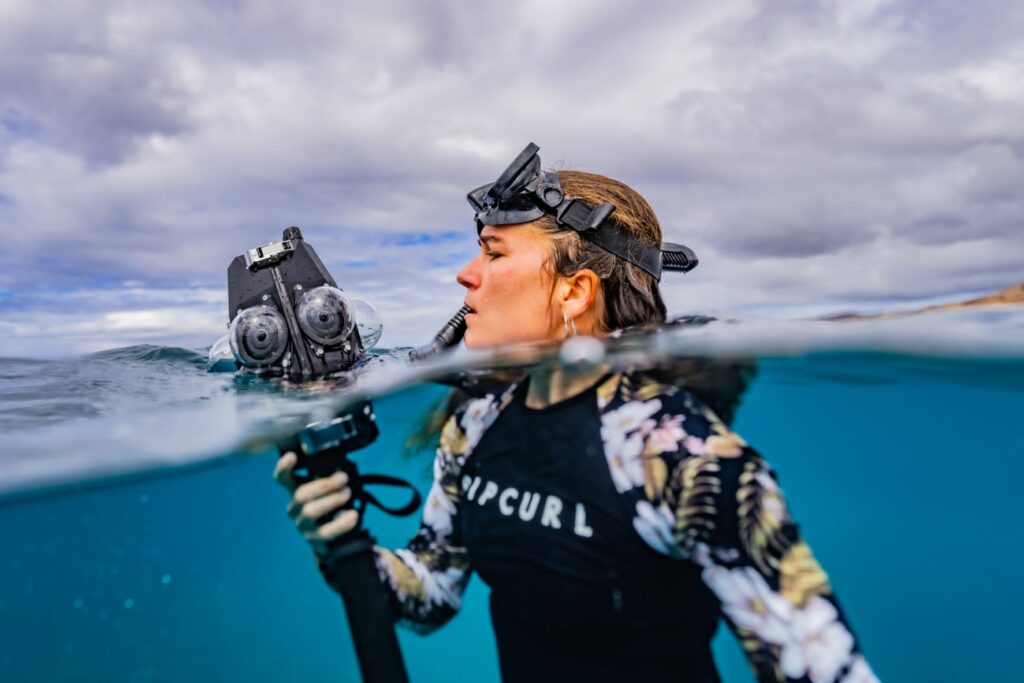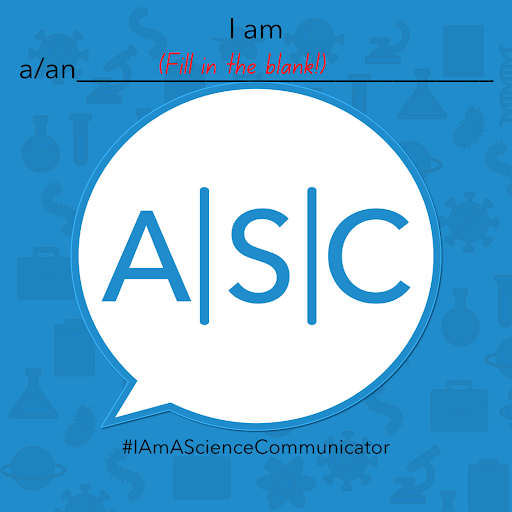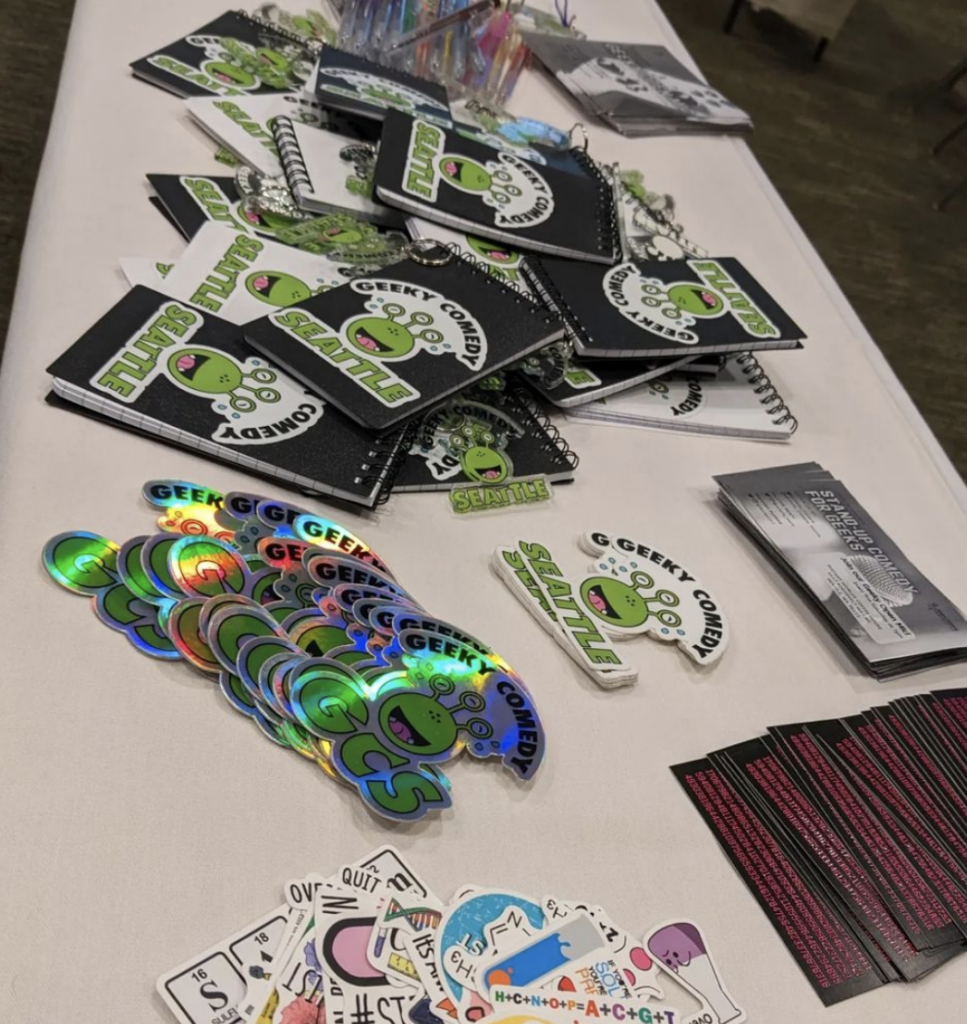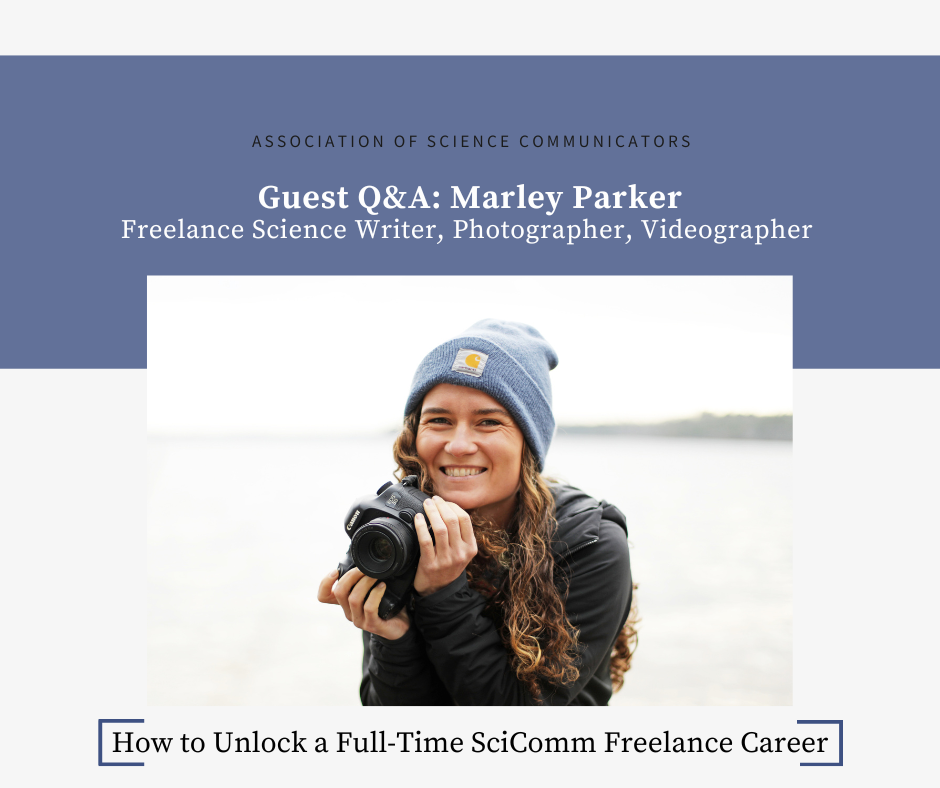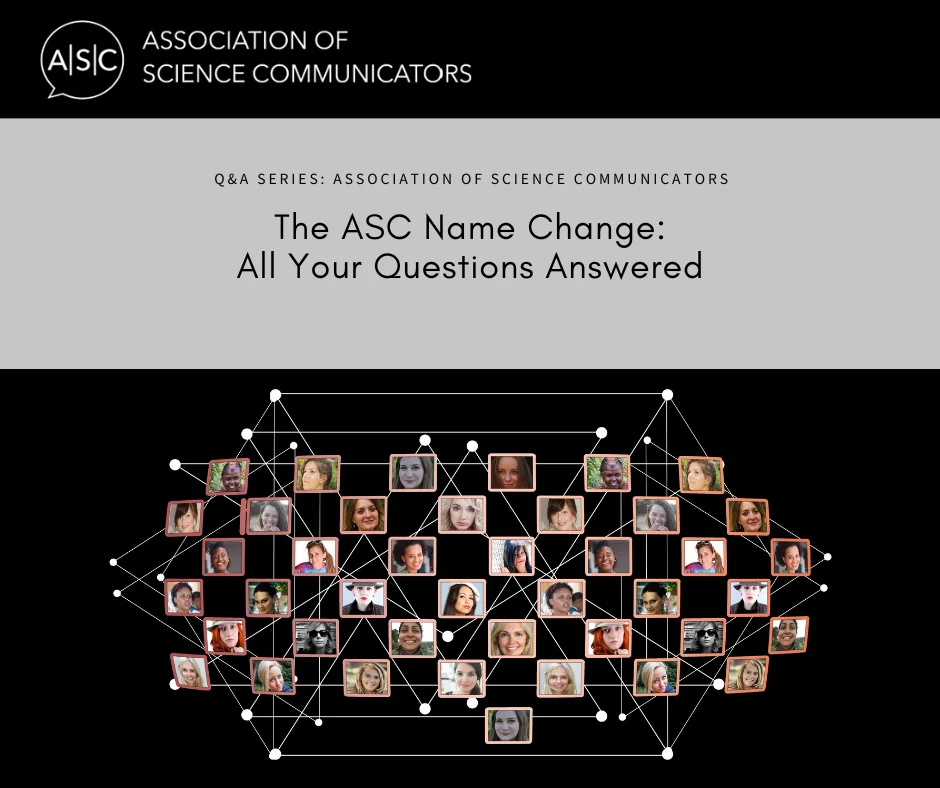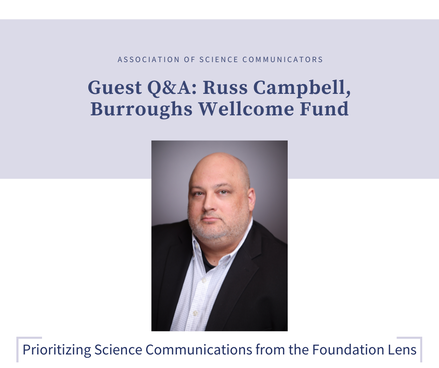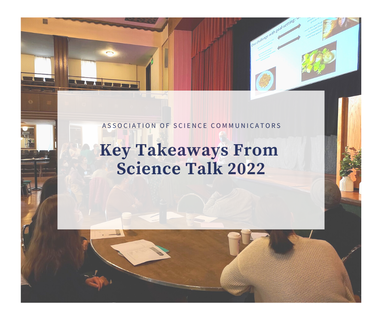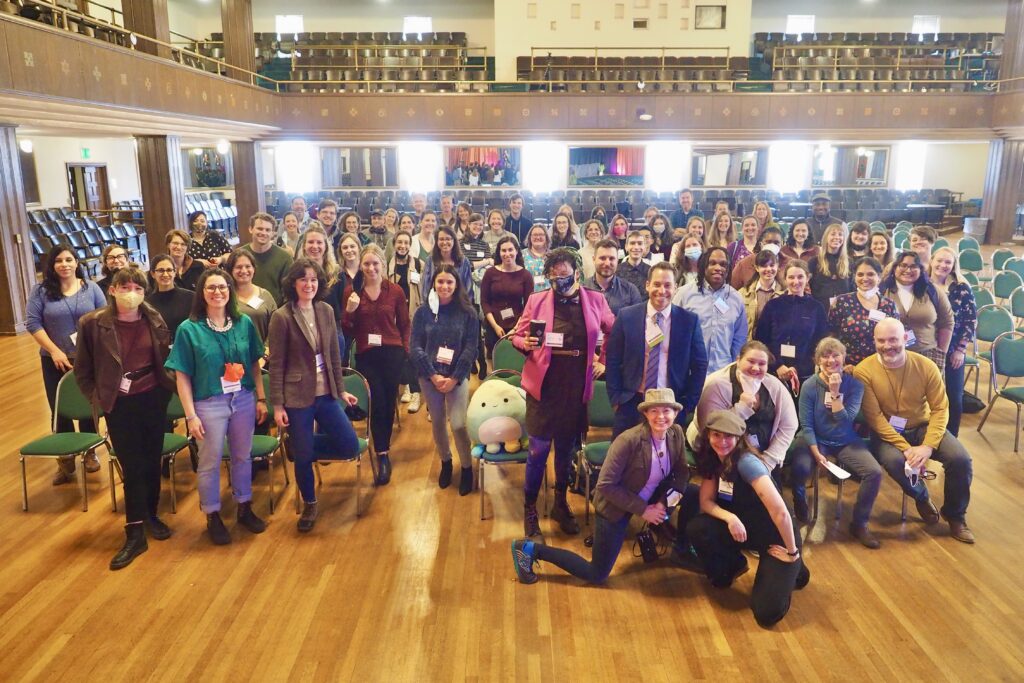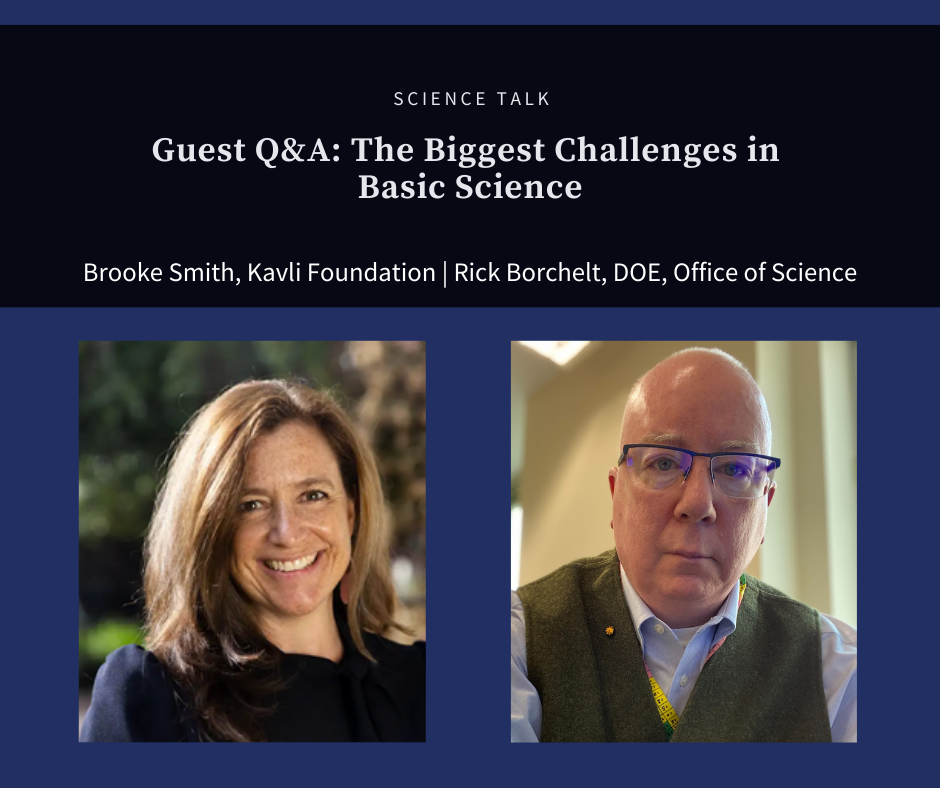ScienceTalk 2024 is just around the corner! We had the honor of chatting with one of our keynote speakers, Dr. Rayvon Fouché, about his career in science communication and what he’s looking forward to at this year’s conference. Q: What is your background in science communication? A: I get very excited about science, and I […]
A Science Blog
A Science Blog
Do you have something to say about science communication and looking for a good forum? Please see our pitching guide and then email blog@sciencetalk.org with your pitch and we’ll discuss the details.
Volunteer Spotlight: Amy Nippert, ASC Blog Editor
In previous ASC volunteer spotlights, we’ve featured science communicators who plan our annual conference, coordinate our year-round course offerings, and lead our marketing and communications team. This time, we’re featuring our blog editor, Amy Nippert. Scott Hershberger (ASC’s newsletter editor) talked with Amy about her lab research on chronic pain, her involvement in science communication […]
Visualizing A Sustainable Energy Future
We are in the early stages of a seismic energy transition. Such transitions coincide with major shifts in human well-being and the health of the Earth’s natural systems. The main storyline of improvements in the overall human condition since about 1800 has two concurrent threads. The first is the massive increase in the extraction and […]
Public Engagement Training In America: Now At Your Fingertips
A new online tool allows anyone to discover and compare public engagement training programs to meet their academic or professional needs. This resource, called the Training Initiatives for Scientists in Public Engagement (TISPE) Dashboard, is an interactive tool meant to compile and categorize the public engagement training opportunities that exist around the country. Who Can Use […]
Volunteer Spotlight: Bre Kelsey, ASC Program Director
The Association of Science Communicators’ growth over the years has been made possible in large part by our passionate long-time volunteers. For our third volunteer spotlight, we’re featuring Bre Kelsey, ASC’s Program Director and a member of our executive board, who has been involved with ASC since 2018. Scott Hershberger (ASC’s newsletter editor) spoke with […]
Increasing Health Literacy in the World of Adult Entertainment
The sun was just starting to come up as I took off my heels, organized stacks of my ones, and laughed with the other dancers about the previous night. “See you tomorrow!” I say as I leave the dressing room and head to my little red car. The early morning hours of March 17th, 2020 […]
Volunteer Spotlight: Sky Hatter, ASC Marketing & Communications Director
The Association of Science Communicators’ volunteers are central to our efforts to serve the scicomm community. For our second volunteer spotlight, we’re featuring Sky Hatter, ASC’s marketing and communications director and webmaster. Scott Hershberger (ASC’s newsletter editor) spoke with Sky about her work as an artist and graphic designer, her experiences in museum exhibit design, […]
Volunteer Spotlight: Amanda Pluntze, ASC Course Coordinator
As a volunteer-run professional society, the Association of Science Communicators depends on our vibrant community for our success. Our volunteers help with conference logistics, community engagement, partnership development, and much more. For our first volunteer spotlight Q&A, we’re featuring Amanda Pluntze, ASC’s course coordinator. Scott Hershberger (ASC’s newsletter editor) spoke with Amanda about her work […]
ASC Q&A: Giving a Voice to Science–Key Takeaways from Science Talk ‘23
The Association of Science Communicators (ASC) hosted its 7th annual Science Talk Conference last month and the evolution of science communication was on full display. This year’s theme centered around “Giving a Voice to Science” and participants saw that message echo through keynote presentations from leaders in the community, panel discussions pulling back the curtain […]
Learning from the policy world to give a voice to science
If we’re to give a voice to science and society, we mustn’t forget the role of lawmakers – and the communication lessons they can provide. I’ve blogged a lot about science policy and how to get involved at the Fancy Comma blog. I’ve talked about being a scientist in politics, ways scientists can get involved […]
Finding our Common Thread through Conversation
What does it mean to “give science a voice?” Scientists develop an interest in science communication for many reasons (Besley et al., 2015), which can include informing people’s decision-making on forefront issues in their fields. Scientists, regardless of their specific areas of expertise, often find themselves in the role of advocates for science more generally […]
Study Underscores Lack of Diversity in Stock Photography Sites
A new study finds that the majority of images related to health topics on stock photography sites are of light-skinned people within a fairly narrow age range, making it more difficult – and expensive – for organizations to create health education materials aimed at reaching other groups. The findings are significant because using images relevant […]
Adapt and Adjust
It is not the most intellectual of the species that survives; it is not the strongest that survives; but the species that survives is the one that is able best to adapt and adjust to the changing environment in which it finds itself. – Charles Darwin Our dive boat bounces through another choppy wave, showering […]
Science Needs More Science Communicators in 2023
ASC is personally asking our community to take two-minutes to review and digitally sign the below open letter, committing to 2023 as the year we build wide-reaching trust in science. If you are looking for more information about our reasoning behind the letter, please visit this link. Science has been politicized to the detriment of […]
Singing my way through grad school
Anyone who has been in a grad program (or still is), knows the feeling of gnawing doubt. Unsure how you ever got into the program. Unsure how to do science. Unsure if you even still like science. Fortunately, when I was in grad school, I got the opportunity to participate in a stand-up comedy workshop […]
Guest Q&A: How to Unlock a Full-Time SciComm Freelance Career
Interest in full-time scicomm careers is skyrocketing, but landing a full-time position that matches your experience and interests can be harrowing. And navigating a freelance career can seem overwhelming without a guide. After hearing her present at Science Talk ‘22, the Association of Science Communicators (ASC) reached out to Marley Parker, freelance science writer, photographer […]
ASC Q&A: Everything You Need to Know About the Association of Science Communicators (Formerly Science Talk) Name Change
An interview with Dr. Kiki Sanford, Dr. Allison Coffin, and Jessica McNellisMembers of the scicomm community may have noticed a shift in our brand over the last few months as we rolled out a new name on social media, teased it at the Science Talk ‘22 annual conference, and now launched a new and improved website. It’s official: Science Talk has changed its name to the […]
ASC Q&A: Prioritizing Science Communications from the Foundation Lens
In the latest Association of Science Communications (ASC) Q&A, ASC’s Dr. Allison Coffin discusses science communications from a foundation perspective with Russ Campbell, Director of Science Communications and Strategic Partnerships & Senior Communications Officer for Burroughs Wellcome Fund (BWF), a private foundation that supports biomedical research, career development for scientists, and STEM education in N.C. Allison Coffin: Can you […]
ASC Q&A: Key Takeaways from the First In-Person SCIENCE TALK Conference in Three Years
An interview with Dr. Kiki Sanford, Dr. Allison Coffin, and Jessica McNellisDr. Allison Coffin and Dr. Kiki Sanford from the Association of Science Communicators (ASC), formerly Science Talk, sat down with Jessica McNellis from s2s Public Relations and Communications to breakdown their favorite moments from the 2022 Science Talk Conference, the unexpected challenges organizing a hybrid event, and what they have planned for next year. Hosting your first in-person event […]
Audience, Empathy, and Messenger: My Takeaways from SCITALK ’22
At Science Talk 2022, hundreds of science communicators from around the world shared their expertise and made new connections. In my previous post, I wrote about my experience meeting fellow science communicators in person for the first time. Today, I’m going to share my personal takeaways from the workshops and talks at the conference. Out of the […]
This is Our Community: My Experience at Science Talk 2022
Get a group of science communicators in a room, and you’re in for a fascinating conversation. Extend that gathering for two full days, and you’ll gain insights that will reshape how you approach your work. That was my experience at Science Talk 2022. I arrived knowing almost no one. My shift from physics and math […]
Science Talk Q&A: Challenges Communicating Basic Science in the Shadow of More Popular Applied Sciences
In a special guest Q&A, Science Talk’s Dr. Kiki Sanford sat down with Brooke Smith, Director of Public Engagement with Science at The Kavli Foundation, and Rick Borchelt, Director of Communications and Public Affairs for the Department of Energy (DOE) Office of Science, to talk about key themes discussed during last year’s SciPEP (Science Public Engagement Partnership) Conference and […]
Engagement: Effective Communication Requires Audience Engagement
First principles of communication, science-specific or otherwise, require both a transmitter of information and a receiver. And if you are to be successful then it’s vital to create – and maintain – a connection between the two. The internet contains almost all of the information in the history of our species. But if you can’t connect to […]
Portland Takes Center Stage in the Debate on Science in the Media and Society as 250 Professional Science Communicators Gather for SCIENCE TALK ‘22
PORTLAND, OR — March 14th, 2022 — The nation’s only conference for professional science communicators convenes with a growing sense of urgency as science literacy and public opinion of science continues to decline. Science Talk ‘22 gathers in person and virtually at the Tiffany Center in Portland, Oregon from March 23rd to 25th, with a focus on […]


